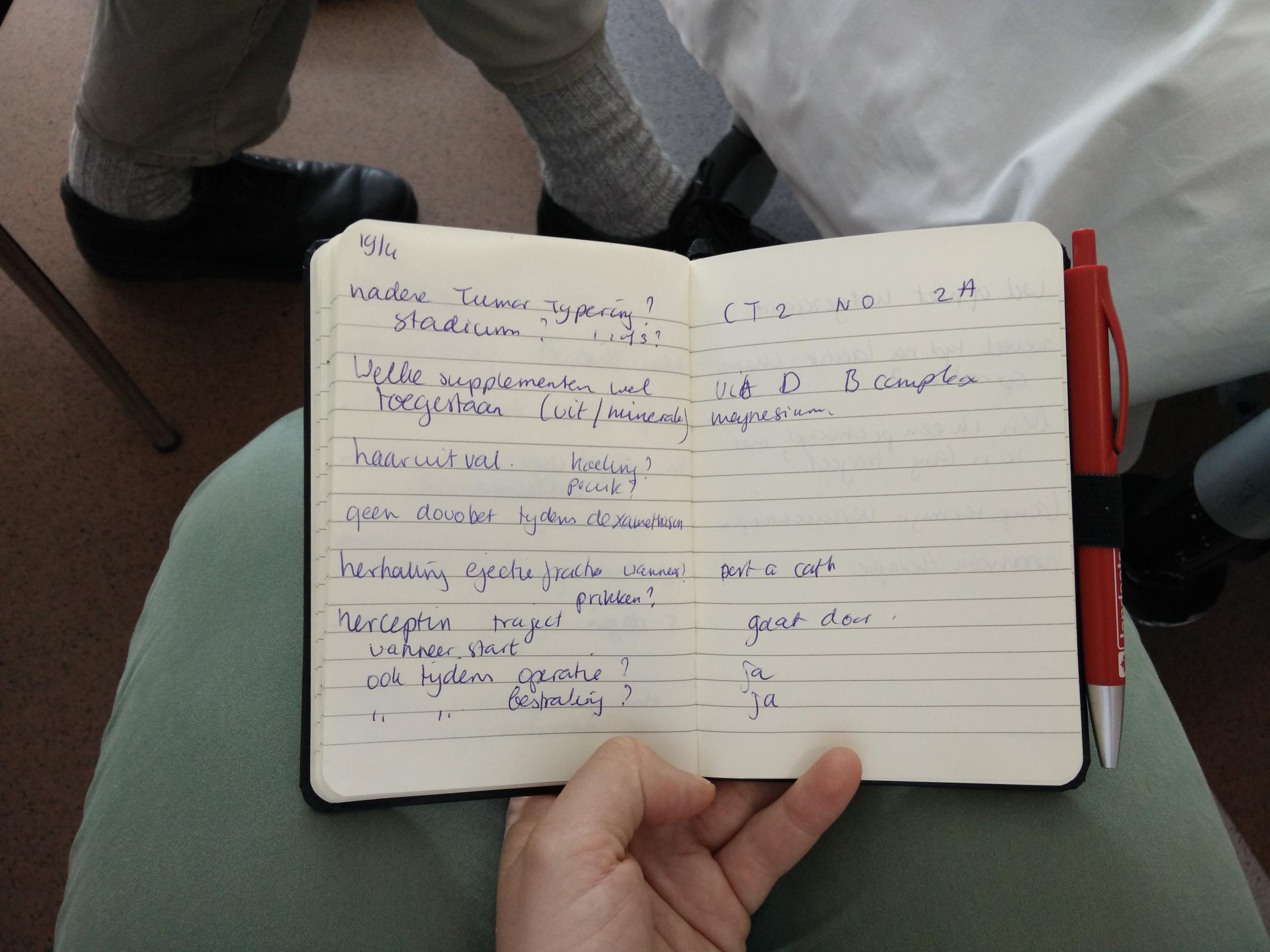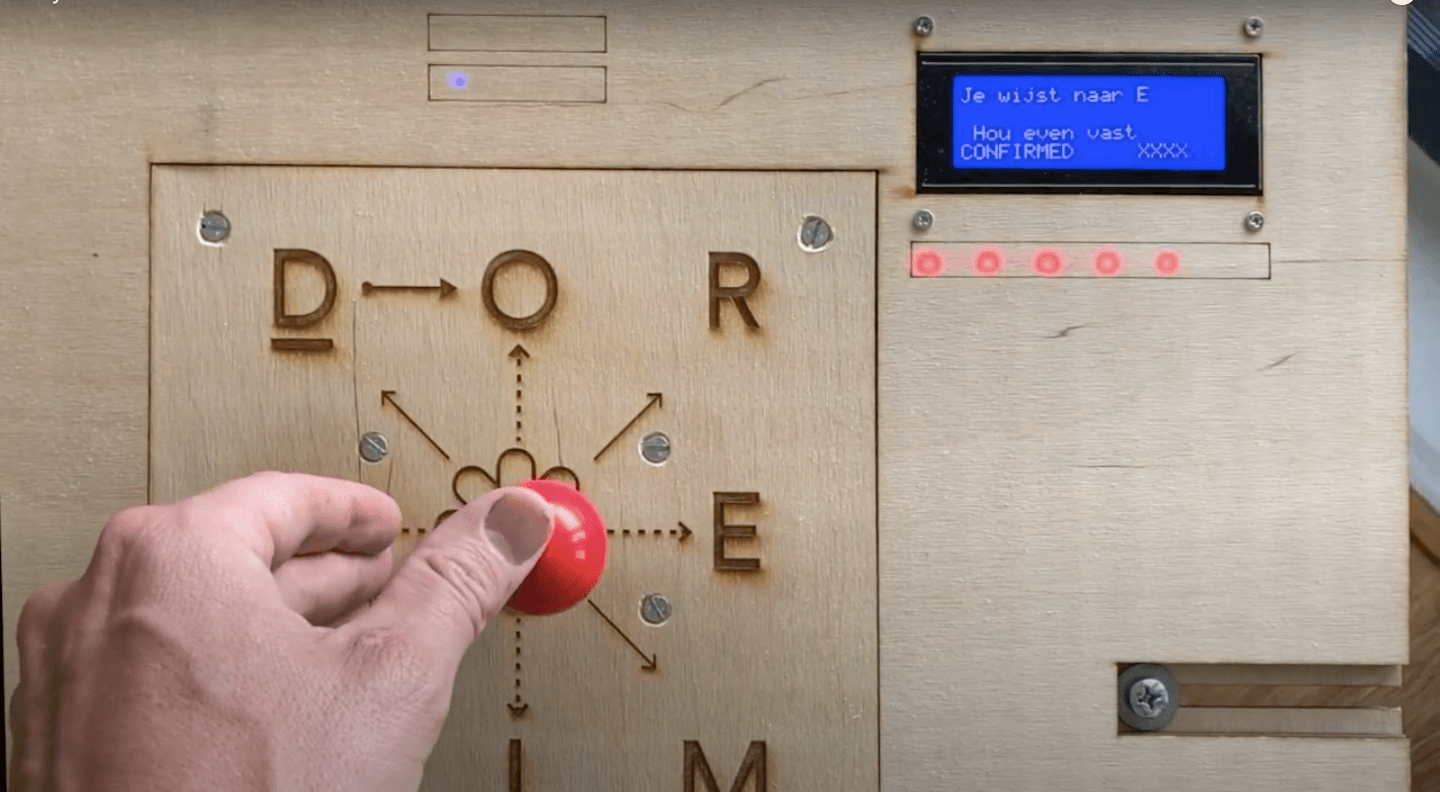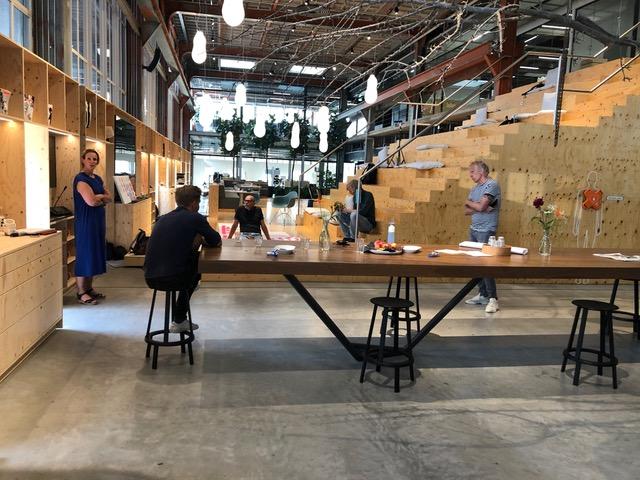As a graduate student from the Information Design Department at the Design Academy Eindhoven, Greta Castellana collaborated with the Creative Care Lab of the Waag to further develop her master project. Greta focussed on the medical consultation between healthcare professionals and breast cancer patients. In her project she involved many (former) patients and nurse practitioner Angelie van den Bosch from Catharina Hospital Eindhoven.
Research of the communication flow and exchange of information between breast cancer patients and healthcare practitioners was her starting point. Herein, Greta noticed that the information exchange between patient and healthcare providers shows room for improvement. A need was identified for a more personalised and step-by-step approach.
The information provision to patients is currently scattered over different media. Piles of informational leaflets, folders and scribbled notes besides an endless amount of different websites can easily become overwhelming and unmanageable for the patient. Furthermore, information provision is rarely tailored according to individual needs, values, and behaviours of the patient. This complicates effective patient empowerment. Greta set off to design a system to better and pro-actively respond to individual needs of patients for a personalised and integrated healthcare experience.

The result of her investigation is a design for an app that encourages patient’s empowerment and provides tailored provision of information. This app is called AidA and is build around two key features:
- The first feature is integration of all different medical content distributed over time and over medical consultation. This system also aims to provide appropriate amount of information to the patient. It also respects the fact that it takes a patient time to process or digest such information. Greta realised a final prototype in which the patient can interact with information, highlight or comment on content. Furthermore, patients can share topics of interest with the provider in order to better prepare upcoming medical consultations.
- The second key feature was also inspired by a specific patient need. Patients that were interviewed all expressed the need to journalize their experience in an easy and structured way, and to attribute a value to it by sharing with healthcare providers, caregivers, and other patients. AidA therefore takes advantages of data gathered by the mobile phone and its connected devices to create a journal in which patients are encouraged to add contextual data to the collected events. The interface enables the patient to explain the reasons behind the data through textual input. These human annotations on top of patient data show a more complete story and provide a human voice adding context and meaning to data. Nurse Practitioner Angelie also emphasised the importance of having such clear feedback from the patient on specific treatments or activities.
In her approach, instead of positioning herself as a designer for a service to a user, Greta embraced the role of being a designer of a system for a participant. In doing she recognised active participation as a key factor contributing to patient empowerment. As a project, AidA speculates on possible scenarios and offers space for new questions, new dialogue and new roles, for (information) designers in healthcare.
AidA primarily focuses on patients and their experiences. This also shows potential for improving the communication between patients and healthcare practitioners. AidA allows patients to portray a personal journal to the healthcare practitioner, who can give meaning to the additional information. Ultimately, patients and healthcare providers can identify patterns in behaviours, lifestyle, and in the whole patient healthcare experience together.
To further develop this project there is the need to collect knowledge and experience from patients, healthcare practitioners, and to promote new partnerships. Greta’s experience shows that interdisciplinary collaborations can stimulate discussion and reveal choices but also possibilities that exist beyond the constraints of the actual social, bureaucratic, and economic context.
For more information on this project, feel free to contact Greta.


